Vocabulary expansion Normal Reading Fiction Worksheets for Ages 8-9
7 filtered results
-
From - To
Enhance your child's vocabulary with our engaging Vocabulary Expansion Normal Reading Fiction Worksheets, designed specifically for ages 8-9. These printable worksheets cultivate essential language skills through captivating fictional stories that spark imagination and curiosity. Each activity encourages thoughtful reading and comprehension, allowing young learners to explore new words in context. Our resources foster an interactive learning experience, promoting language retention while making vocabulary acquisition fun and effective. Perfect for homeschooling, extra practice, or classroom use, these worksheets help your child build a robust vocabulary foundation. Empower their love for reading and language with our thoughtfully crafted educational materials today!


Rhymes in Poems Worksheet
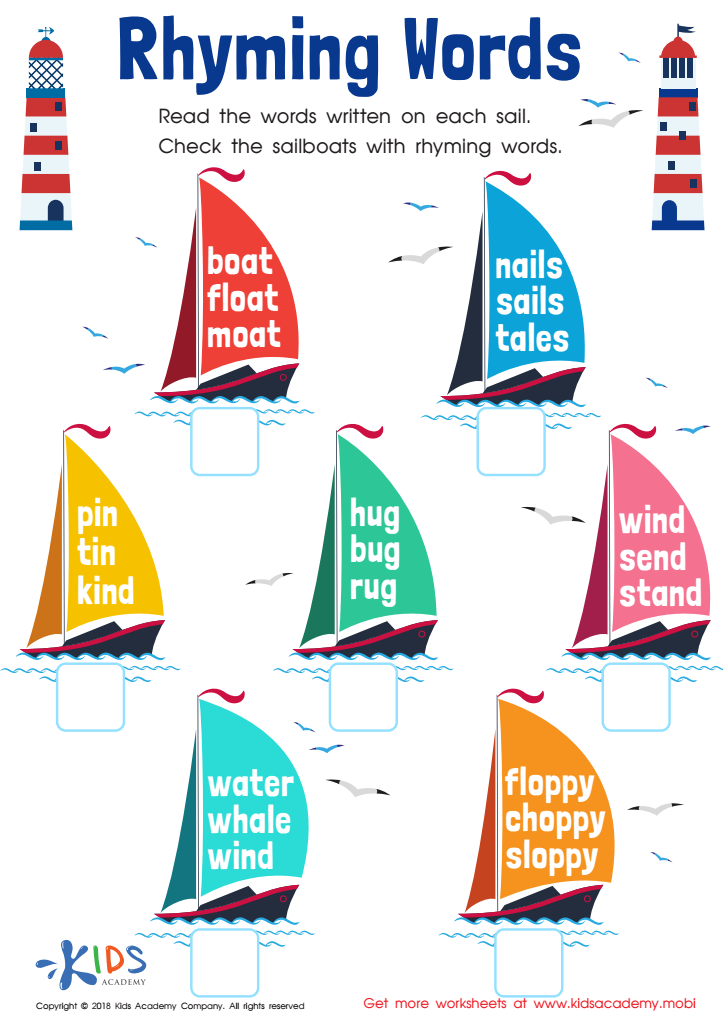

Rhyming Words Worksheet
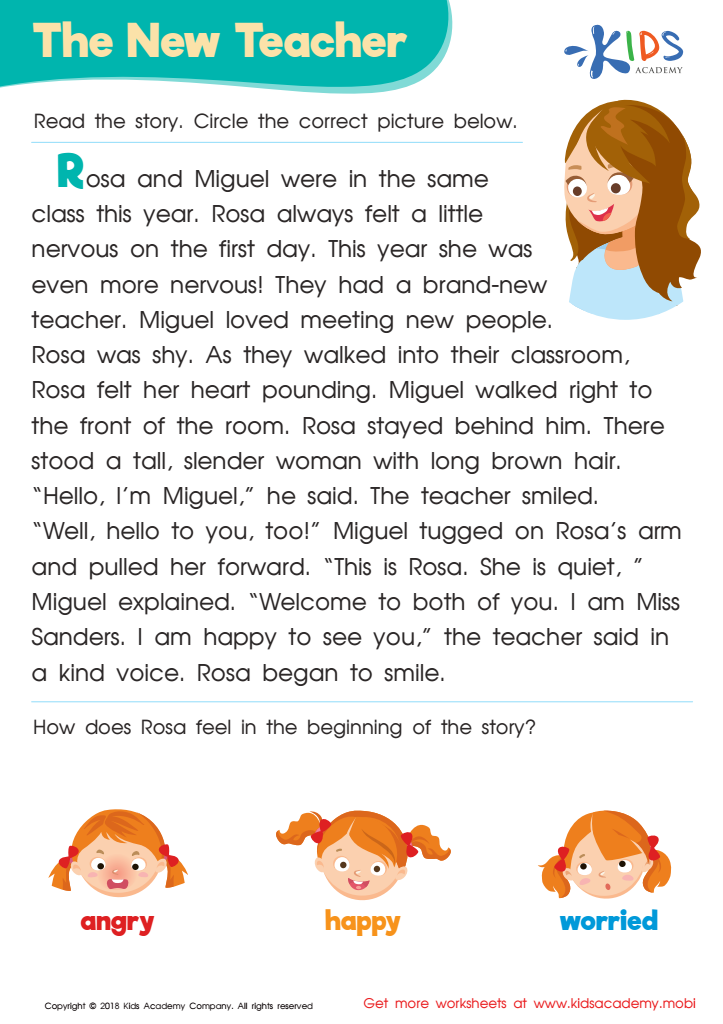

The New Teacher Worksheet
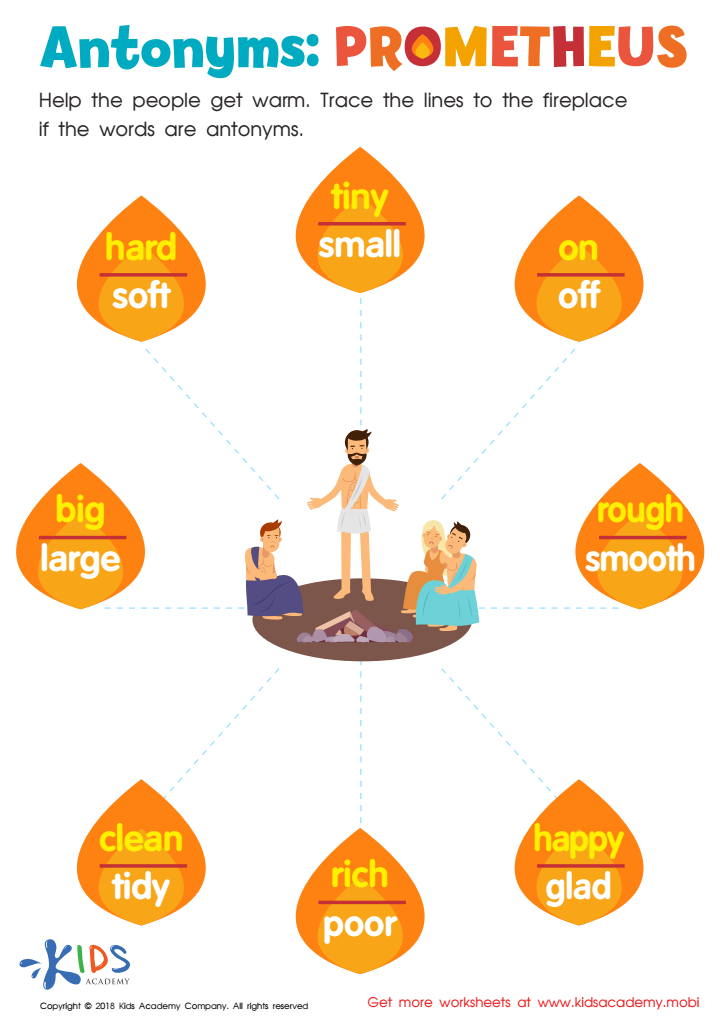

Antonyms: Prometheus Worksheet
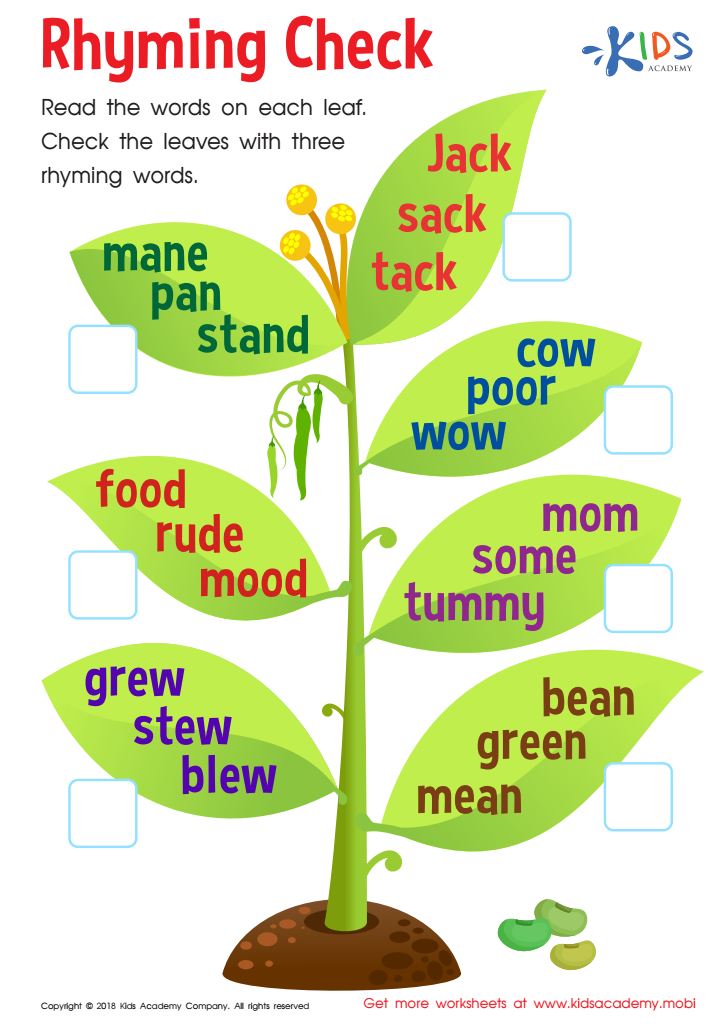

Rhyming Check Worksheet
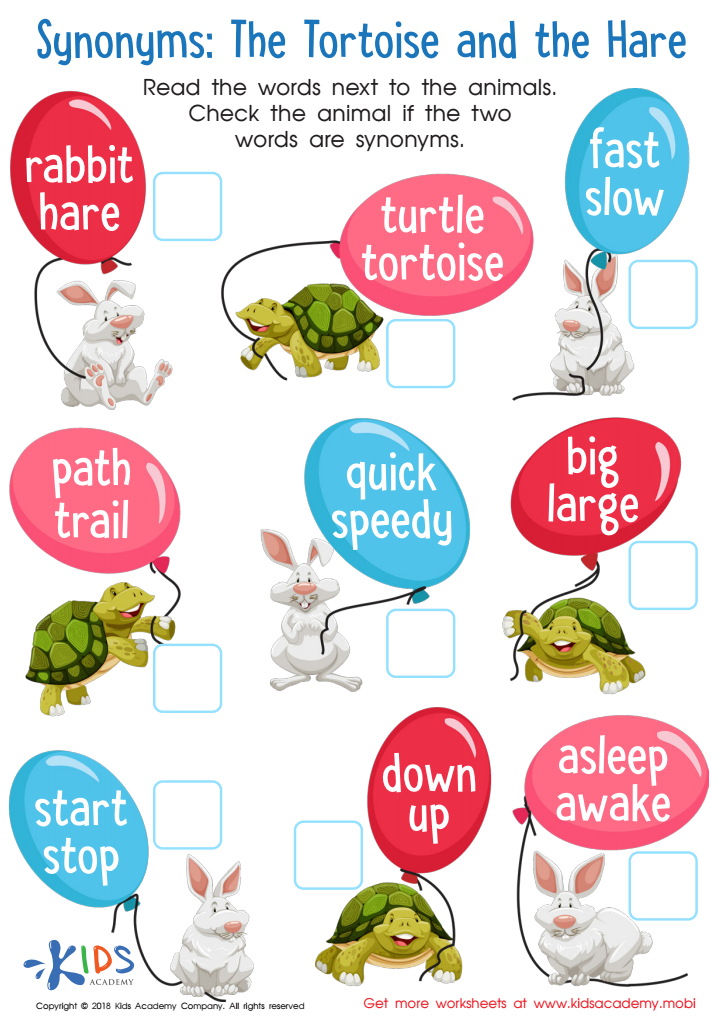

Synonyms: The Tortoise and Hare Worksheet
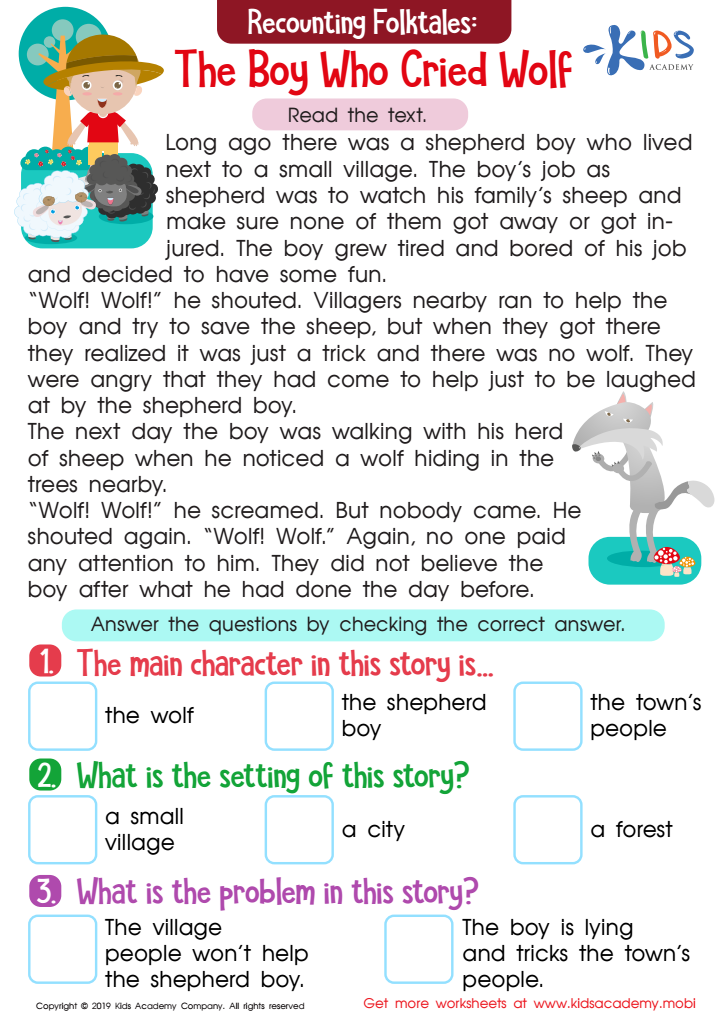

The Boy Who Cried Wolf Part 1 Worksheet
Vocabulary expansion through normal reading fiction is crucial for children aged 8-9 for several reasons. At this age, children are transitioning from learning to read to reading to learn. Exposure to rich language in fiction helps them develop essential language skills, enhancing their vocabulary with new words and phrases that are often not found in everyday conversation.
Reading fiction also fosters comprehension skills. As children encounter diverse narratives and character experiences, they learn to infer meanings and understand context, helping them use new words more effectively. This literacy development is fundamental not just for academic success, but for effective communication in wider social settings.
Engaging with stories stimulates imagination and critical thinking. By interacting with different themes and characters, children explore emotions and situations which aid emotional and social development. Moreover, when parents and teachers encourage discussions about the stories, it reinforces learning and retention.
Ultimately, vocabulary expansion through engaging fiction nurtures a love for reading, instilling lifelong learning skills. Parents and teachers play a pivotal role in guiding children to discover exciting literary worlds, thus enriching their language abilities and supporting their overall cognitive growth.

 Assign to My Students
Assign to My Students







.jpg)











